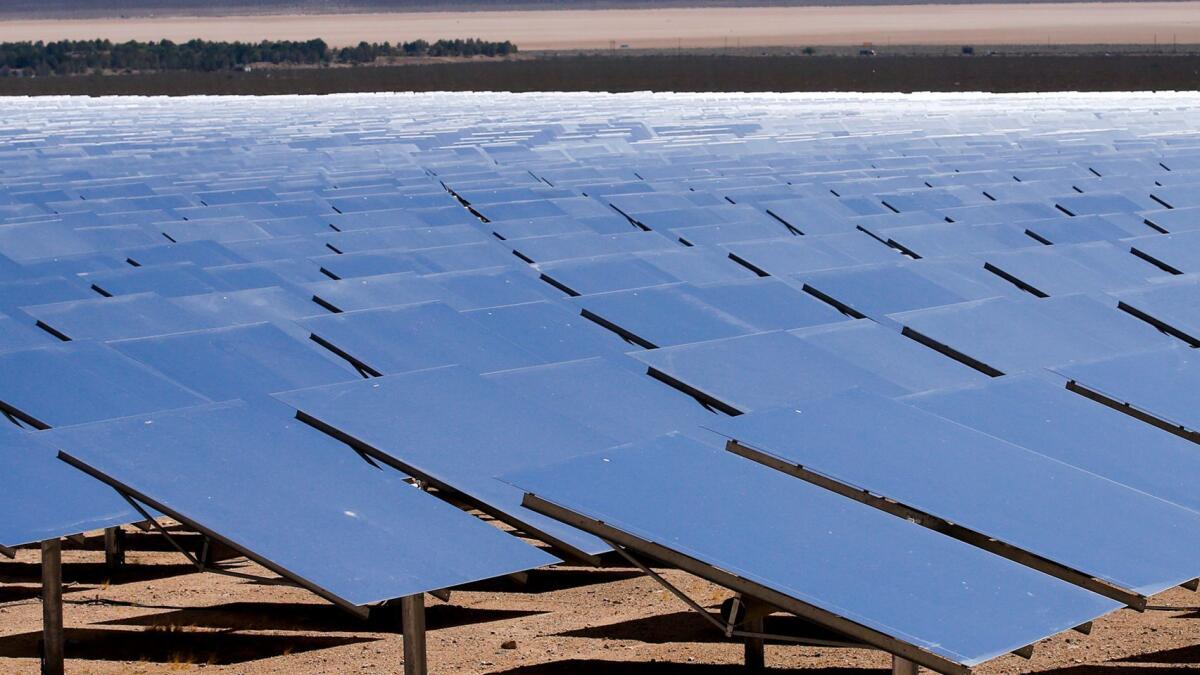Column: National Academy says Stanford professor is trying to ‘silence’ scientific debate with his $10-million lawsuit

The National Academy of Sciences has called on a Washington, D.C., court to throw out a Stanford professor’s $10-million defamation lawsuit, calling the case “an unvarnished attempt to muzzle speech and end-run the First Amendment.”
The professor is Mark Z. Jacobson of Stanford’s Department of Civil and Environmental Engineering, who filed the lawsuit against the National Academy and environmental expert Christopher Clack in a Washington court in September. Jacobson asserted that he was defamed in a paper by Clack and 20 co-authors published in the Proceedings of the National Academy of Sciences earlier this year. The paper challenged Jacobson’s claim, in a 2015 paper published in the same journal, that wind, solar and hydroelectric power could provide 100% of the energy demand in the continental U.S. “at low cost” by about 2050.
[Jacobson] seeks to censor the Academy for providing a forum for robust scientific debate ... and chill the critical exchange of ideas.
— National Academy of Sciences
As we reported recently, Jacobson’s lawsuit has roiled the scientific community because it looks like an effort to move a legitimate scientific debate out of the pages of peer-reviewed journals, where it belongs, and into the courtroom. That’s the point made in the National Academy’s dismissal motion filed this week and a similar motion filed by Clack. Both cite D.C.’s anti-SLAPP law, which prohibits “strategic lawsuits against public participation.” Such lawsuits aim to intimidate targets pursuing their rights to free speech. A hearing on the motions is scheduled for Dec. 29.
The National Academy asserts that Jacobson “seeks to censor the Academy for providing a forum for robust scientific debate on one of the foremost issues of public concern today” — that is, climate change — “and chill the critical exchange of ideas essential to scientific progress.” Jacobson’s goal, the Academy asserts, is “to silence those who disagree with him.”
Jacobson has claimed that his lawsuit is not about litigating a scientific disagreement in the courtroom, but about being treated fairly and punishing a personal attack. He says the Clack paper made factually incorrect assertions about his work, and the academy turned away his demand that the Clack paper not be published or, once published, that it be retracted.
But Jacobson’s disagreement with Clack and the National Academy is, in fact, all about science: It boils down to the interpretation of data related to the potential of hydroelectric power to fill gaps in electrical demand left unserved by solar and wind power, which generate electricity intermittently — when the sun shines and the wind blows.
Jacobson said hydro could meet that challenge; Clack et. al. considered that claim vastly optimistic. They said so, pointedly, in their paper.
Nothing in their critique rose to the level of a personal attack, the academy says. Their paper didn’t question Jacobson’s “honesty or integrity, or imply that [he] engaged in professional misconduct or deceit.” Instead, they were raising “esoteric scientific issues.” In any event, the academy granted Jacobson the space to rebut their critique and published it in the same edition of its journal in which the critique appeared.
Keep up to date with Michael Hiltzik. Follow @hiltzikm on Twitter, see his Facebook page, or email michael.hiltzik@latimes.com.
Return to Michael Hiltzik’s blog.




